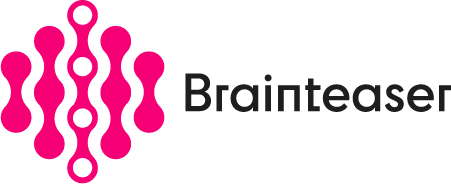Universidad Politécnica de Madrid
UPM (ES)
Besides coordinating the project, UPM leads the design and development of the Amyotrophic Lateral Sclerosis and Multiple Sclerosis patients’ app for monitoring, data acquisition and feedback. The app provides a set of tools to foster the self-management of the disease using educational contents, and services to improve the adherence to treatment. In addition, UPM is responsible for implementing the clinical tools to monitor the progresses and assess the patients that use the app. Finally, UPM contributes to the applicability of the Artificial Intelligence models in the clinical context and in the daily patient’s routine.
Università degli Studi di Padova
UNIPD (IT)
UNIPD, BRAINTEASER technical manager, is leading the development of Artificial Intelligence models to predict the risk of progression in the patients with ALS and MS and is responsible of implementing the project’s Open Science framework. In this latter context, UNIPD is responsible of data fairification and of the organization of annual open evaluation challenges to maximize the impact of the project’s results. Moreover, UNIPD has developed, at the beginning of the project, the pre-processing pipeline for the signals acquired on patients by wearable sensors monitoring their activity/mobility and vital signs.
FCIÊNCIAS.ID Associação para a Investigação e Desenvolvimento de Ciências – FC.ID (PT)
FCIÊNCIAS.ID is leading the project activity targeting Artificial Intelligence models for patient stratification. It further actively participates in all other tasks concerning the development of those models to unravel disease mechanisms, predict disease progression, and suggest interventions that can delay disease progression.
Università degli Studi di Torino
UNITO (IT)
UNITO, BRAINTEASER ethical manager, provides to the project relevant Amyotrophic Lateral Sclerosis data. Moreover, UNITO addressed the concept definition and the general guidelines and work on exploiting the sensor-based information to predict Amyotrophic Lateral Sclerosis and Multiple Sclerosis disease progression and risk level by coordinating the development of Artificial Intelligence methods for disease monitoring.
Instituto De Medicina Molecular João Lobo Antunes – iMM (PT)
iMM is involved in the concept definition and general procedures of the project, as well as the ethical and legal framework for data collection and use. iMM provides clinical and laboratory data from Amyotrophic Lateral Sclerosis patients, and evidence-based medical background to establish guidelines for risk predictors, population stratification, and variables inclusion.
Servicio Madrileño de Salud – SERMAS (ES)
SERMAS, BRAINTEASER ethical manager, provides to the project relevant Amyotrophic Lateral Sclerosis and Multiple Sclerosis data. Moreover, SERMAS addressed the concept definition and the general guidelines and work on exploiting the sensor-based information to predict Amyotrophic Lateral Sclerosis and Multiple Sclerosis disease progression and risk level by coordinating the development of Artificial Intelligence methods for disease monitoring.
Fondazione Istituto Neurologico Nazionale Casimiro Mondino – MNDN-PV (IT)
MNDN-PV has lead the integration of environmental data in the Artificial Intelligence models to predict the risk and progression in Amyotrophic Lateral Sclerosis and Multiple Sclerosis. Mondino Foundation has been supported by the University of Pavia in the design, definition and implementation of algorithms for extracting patterns from different data, including the environmental ones.
Belit d.o.o. – BELIT (RS)
BELIT leads the development, deployment and maintenance of the core backbone system infrastructure and software for data acquisition, consolidation and fusion, storage, management and provision to other modules and components of the BRAINTEASER platform and tools. It also contributes to all technical/development, IoT and AI models integration, and bioinformatics-related project’s activities. Participation in data sharing, open science, dissemination and exploitation complements the development and implementation efforts.
InSilicoTrials Technologies S.p.A
IST (IT)
Within the BRAINTEASER project’s management team, IST fulfills the roles of Innovation Manager and Quality & Risk Manager. IST is integrating a selected number of AI-based simulation workflows – provided by the project’s partners- into its commercial cloud-based platform, insilicotrials.com. This integration is designed to deliver a comprehensive suite for monitoring Amyotrophic Lateral Sclerosis and Multiple Sclerosis, encompassing short-term risk alert, patient stratification, and disease progression analysis.
ECHAlliance Company Limited by Guarantee – ECHAlliance (IE)
ECHAlliance is the BRAINTEASER Dissemination and Communication Manager, leading the activities related to the Exploitation, Communication and Dissemination work strand. ECHAlliance has designed the strategy for raising awareness on the BRAINTEASER project achievements, and is responsible for leading and overseeing implementation of these activities.
The European Brain Council AISBL
EBC (BE)
The European Brain Council (EBC) leads the activities related to the liaison between BRAINTEASR and related projects and activities to foster the 1. exchange of information and ideas 2. generation of synergies and collaborations. EBC also supports the project co-design activities and the BRAINTEASER communication, dissemination and exploitation initiatives.






![Hospital Universitario GregorioMarañon[1]](https://brainteaser.health/wp-content/uploads/2021/04/Hospital-Universitario-GregorioMaranon1-scaled.jpg)




